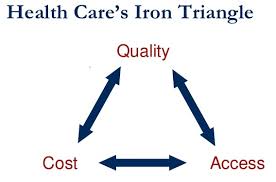The Cost of Quality in Healthcare
Apr 01, 2023
This research assignment explores the costs associated with quality in healthcare. Quality assurance, or QA, is a measure of how well an organization meets certain standards and requirements. These standards are typically set by local, state, and federal regulations as a way to ensure that all aspects of patient care meet the highest levels of safety and efficacy.
When it comes to healthcare costs, quality assurance plays an important role in keeping them down. For example, if hospitals are able to adhere to strict guidelines for their facility standards, they may be able to reduce medical errors which can lead to costly malpractice suits. Similarly, if medical practitioners follow evidence-based treatments and protocols they can help patients avoid unnecessary tests or procedures which would add additional expenses.
Additionally, there are certain costs associated with implementing and maintaining quality assurance measures. These include the cost of hiring or training personnel to ensure that standards are being met, as well as the cost of implementing quality control systems such as audits and reviews.

Finally, it’s important to consider the cost of not adhering to quality assurance measures. Poorly managed facilities can lead to higher rates of medical errors which can have a significant financial impact on an organization. Similarly, if evidence-based practices are not followed then it could result in increased costs due to unwarranted treatments and procedures.
By taking into account both direct and indirect costs associated with quality assurance in healthcare, organizations can make informed decisions about their spending habits and be confident that they are providing quality care for their patients.
In conclusion, the cost of quality in healthcare is an important factor that should not be overlooked when assessing budget and operational expenditures. Quality assurance measures can help to reduce medical errors while ensuring adherence to standards-of-care, leading to more efficient practices and ultimately better patient outcomes. However, there are certain costs associated with implementing QA initiatives which must also be taken into consideration. Therefore, it’s essential that organizations carefully weigh the pros and cons before making any decisions regarding spending on quality assurance measures. In doing so, they can ensure that they are providing the best care possible while staying within budget.
